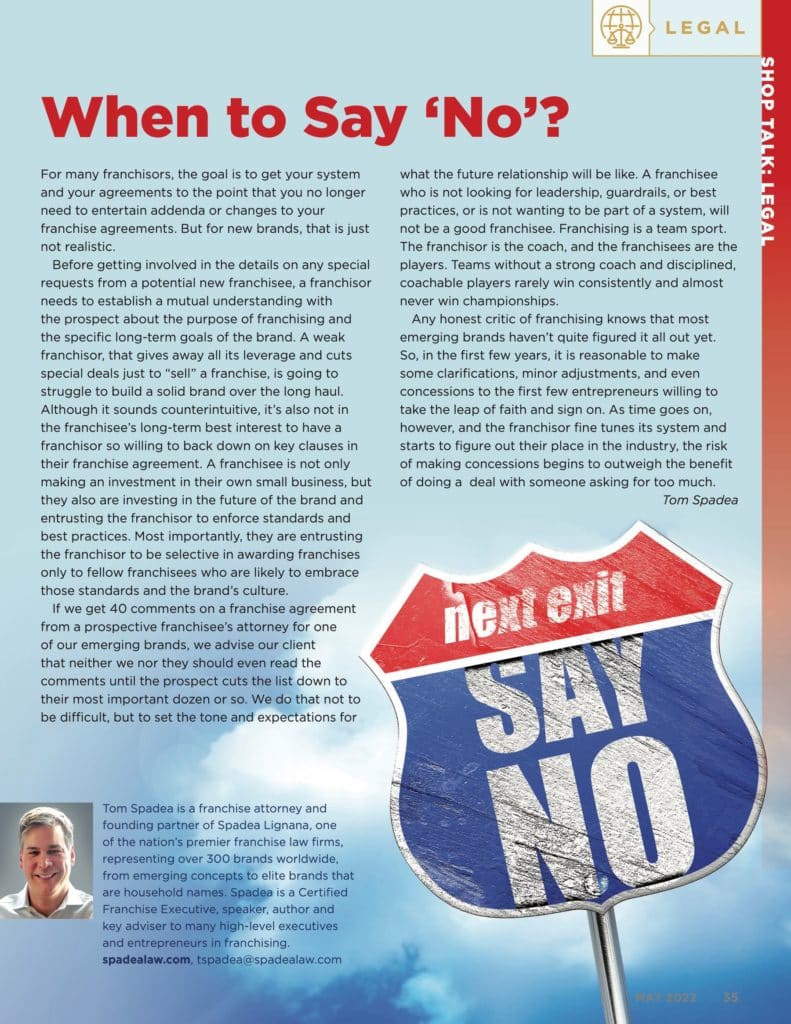This article by Tom Spadea was featured in the May 2022 issue of Franchise Dictionary Magazine.
When to Say “No”?

Before getting involved in the details of any special requests from a potential new franchisee, a franchisor needs to establish a mutual understanding with the prospect about the purpose of franchising and the specific long-term goals of the brand. A weak franchisor, that gives away all its leverage and cuts special deals just to “sell” a franchise, is going to struggle to build a solid brand over the long haul. Although it sounds counterintuitive, it’s also not in the franchisee’s long-term best interest to have a franchisor so willing to back down on key clauses in their franchise agreement. A franchisee is not only making an investment in their own small business, but they also are investing in the future of the brand and entrusting the franchisor to enforce standards and best practices. Most importantly, they are entrusting the franchisor to be selective in awarding franchises only to fellow franchisees who are likely to embrace those standards and the brand’s culture.
If we get 40 comments on a franchise agreement from a prospective franchisee’s attorney for one of our emerging brands, we advise our client that neither we nor they should even read the comments until the prospect cuts the list down to their most important dozen or so. We do that not to be difficult, but to set the tone and expectations for what the future relationship will be like. A franchisee who is not looking for leadership, guardrails, or best practices, or is not wanting to be part of a system, will not be a good franchisee. Franchising is a team sport. The franchisor is the coach, and the franchisees are the players. Teams without a strong coach and disciplined, coachable players rarely win consistently and almost never win championships.
Any honest critic of franchising knows that most emerging brands haven’t quite figured it all out yet. So, in the first few years, it is reasonable to make some clarifications, minor adjustments, and even concessions to the first few entrepreneurs willing to take the leap of faith and sign on. As time goes on, however, and the franchisor fine-tunes its system and starts to figure out their place in the industry, the risk of making concessions begins to outweigh the benefit of doing a deal with someone asking for too much.
To see all of Tom’s featured articles on The Franchise Dictionary Magazine, visit this page.







